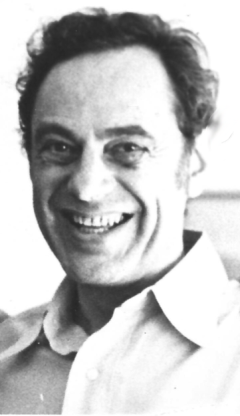OVERVIEW OF FOCUSING
Focusing is an experiential, embodied and evidence-based practice of self-reflection (Krycka & Ikemi, 2016). During Focusing, your attention will open up to multiple layers and aspects of living. It’s called Focusing because it requires a special kind of “focus” to notice what is not yet clear, fuzzy and vague, implicit in how you interact with your situations and environment. This fuzzy dimension of experience is called “felt sense”. Focusing on the “felt sense” allows an in-depth clarification process to happen. Sometimes this leads to an amazing experience that the body is reliable in its living forward tendency. For some persons, Focusing is a very natural process, others can do this with some training. The subtle movements experienced during a Focusing session have the potential to transforms the framework of thinking and stuck emotional patterns. In the speed of your daily life, and in the overflow of information, Focusing is helpful to get a clearer sense for anything that matters to you among the complexities of life. The practice has been found to enhance well-being, meaning in life, and all kind of healing and creative processes (e.g. Krycka & Ikemi 2016; Pellens et al., 2022; Vanhooren et al., 2021). Ongoing research since the 1960s robustly demonstrated that clients who get in touch in a Focusing way with their experiential process, are more successful in psychotherapy than those who do not know this act of embodied self-reflection (Hendricks, 2009; Krycka & Ikemi, 2016; Pascal-Leone & Yeryomenko, 2017).
Focusing is often compared to Mindfulness, Zen and different kinds of meditations. They are related in cultivating non-judgmental attention to the “here and now” that can be felt in the body. Focusing is different from its “neighbors” because bodily felt sensing creates a space for meaning to be freshly formed. Focusing engages language more than its “neighbors”. That’s because during Focusing you use language to explicate how you experience something, and thus learn how to (re-)connect language to your ongoing experiencing body. Therefore, Focusing is considered a process that integrates feeling and thinking, body and mind (Schoeller 2019; Schoeller, Thorgeirsdottir &Walkerden 2024).
While Focusing can be done alone, it is mostly done together with another person. Focusing goes hand in hand with a thorough-going practice to listen in a non-intervening, attentive, open-minded and open-hearted way to each other. In this respect, Focusing is a practice to generate a space for yourself and the other to allow the exploration of the felt-sense dimension of human living to happen.
Eugene Gendlin (1926-2017) – philosopher, psychotherapist, professor: University of Chicago, the originator of Focusing. In his collaboration with Carl Rogers, Gendlin was instrumental in the development of Client-Centered Therapy/ Person-Centered Approach. While remaining a philosopher all his life, his development of the Experiential Approach revolutionized the field. He received international awards, including the Distinguished APA Professional Psychologist Award and the APA Lifetime Achievement Award
REFERENCES
Hendricks, M. (2009). Experiencing level: An instance of developing a variable from a first person process so it can be reliably measured and taught. Journal of Consciousness Studies, 16 (10–12), 129–155.
Klein, M. H., Mathieu, P. L., Gendlin, E. T., and Kiesler, D. J. (1969). The Experiencing Scale: A Research and Training Manual Volume 1. Wisconsin Psychiatric Institute.
Krycka, K. C., & Ikemi, A. (2016). Focusing-oriented – experiential psychotherapy: From research to practice. In D. J. Cain, K. Keenan, and S. Rubin (Eds.), Humanistic psychotherapies: Handbook of research and practice, second edition (pp. 251-282). American Psychological Association.
Pascual-Leone, A., & Yeryomenko, N. (2017). The client “experiencing” scale as a predictor of treatment outcomes: A meta-analysis on psychotherapy process. Psychotherapy Research, 27(6), 653-665. https://doi.org/10.1080/10503307.2016.1152409
Pellens, H., Dezutter, J., Luyten, P., & Vanhooren, S. (2022). To be scared or scared to be: Existential anxiety as a mediator between meaning experience and depression. Journal of Humanistic Psychology. Advance online publication. https://doi.org/10.1177/00221678221140617
Vanhooren, S., Grosemans, A., & Breynaert, J. (2022). Focusing, the felt sense, and meaning in life. Person-centered & Experiential Psychotherapies, 21(3), 250-268. https://doi.org/10.1080/14779757.2022.2028660

